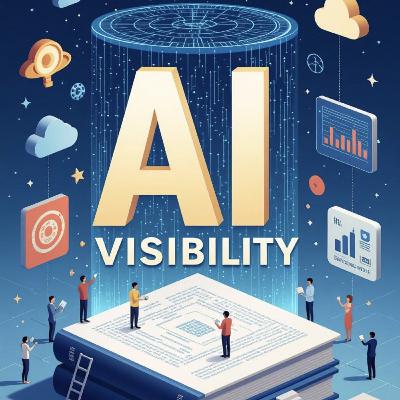Navigating AI's Impact on Marketing and Sales
Description
This briefing document synthesizes key insights from the provided sources regarding AI's impact on marketing and sales roles, focusing on jobs at risk and actionable strategies for professionals to adapt and thrive.
I. Main Themes
The core themes emerging from these sources are:
- AI's Disruptive Potential: AI is poised to significantly automate and potentially obsolete a substantial number of jobs, particularly within marketing and sales.
- Proactive Adaptation is Crucial: Rather than fearing AI, professionals in affected fields must actively embrace and integrate AI into their work to remain relevant and valuable.
- Opportunity for Growth: AI presents an opportunity for individuals to re-skill, lead, and become essential resources within their organizations by understanding and leveraging these new tools.
II. Most Important Ideas/Facts
A. Jobs at Risk in Marketing and Sales
A significant portion of jobs identified as highly susceptible to obsolescence by AI fall within the marketing and sales domain. Microsoft's analysis of 200,000 anonymized Bing Copilot chats revealed that "a quarter of them fall loosely under marketing and sales." This finding highlights the immediate and direct impact AI is expected to have on these sectors.
The specific roles identified include:
- Services Sales Reps
- Writers and Authors
- Telemarketers
- Technical Writers
- Proofreaders and Copy Markers
- Editors
- Public Relations Specialists
- Demonstrators and Product Promoters
- Advertising Sales Agents
- Market Research Analysts
PRO TIP: The source advises individuals in these fields to "start asking AI what you could be doing next to avoid obsolescence," emphasizing the importance of utilizing AI as a tool for career planning and adaptation.
B. Actionable Strategies for Becoming an AI-Driven Professional
The second source outlines five visible and actionable steps for marketing and sales professionals to transform into "AI-driven" experts:
- Learn how to prompt effectively: This is fundamental for interacting with AI tools. The recommendation is to "Practice writing prompts that improve ad performance, SEO or reporting." This skill allows professionals to directly influence and optimize their work using AI.
- Build an internal AI use case: Instead of broad theories, professionals should "Automate one boring task. Then show how it saved you four hours a week." This demonstrates tangible value and efficiency gains.
- Document and highlight AI achievements: It's essential to "list the above ^^^ in your next performance review." Quantifying AI's positive impact on personal productivity and team efficiency reinforces individual value.
- Create a monthly AI impact recap: This involves regularly showcasing AI's contributions with a clear message: "Here’s what I did. Here’s how AI helped the team." This continuous reporting builds a reputation as an AI advocate and expert.
- Become the AI explainer: This involves translating complex AI tools into understandable concepts for colleagues. "Translate a confusing AI tool into a one‑slide explainer. Show it at a team meeting. People will come to you next time." This positions the individual as a valuable resource and leader in AI adoption.
III. Conclusion
The sources collectively paint a clear picture: AI is not merely a future trend but an immediate force reshaping the landscape of marketing and sales jobs. While certain roles face a high risk of obsolescence, the emphasis is firmly on proactive adaptation and upskilling. By embracing practical steps such as mastering prompt engineering, demonstrating AI's value through specific use cases, and acting as an internal AI educator, marketing and sales professionals can not only mitigate risks but also position themselves as indispensable leaders in an AI-driven future. The opportunity lies in transforming from an AI-impacted employee to an AI-empowered professional.





